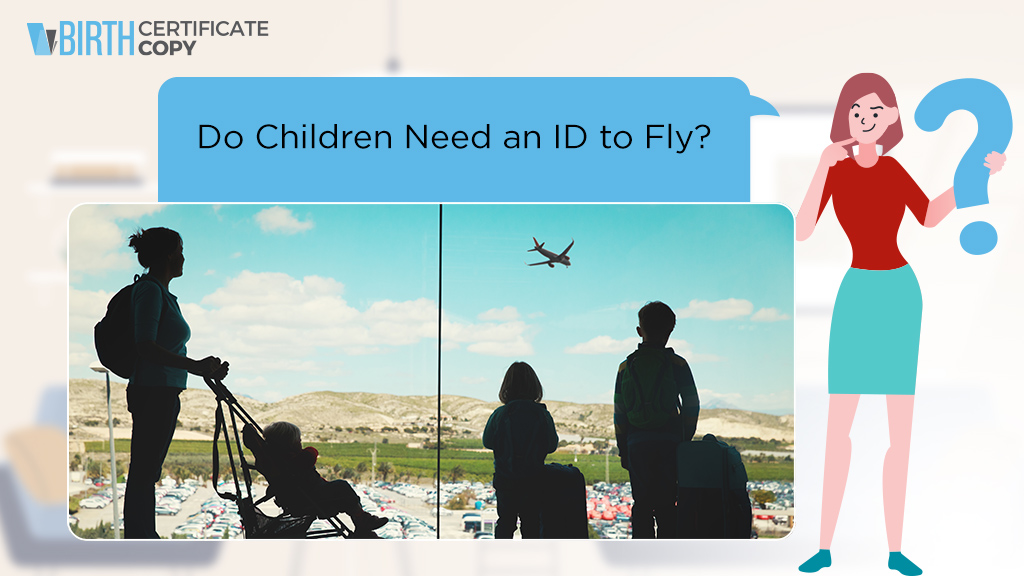Traveling with children requires careful preparation, including understanding the necessary identification requirements for minors to fly. Whether it’s a domestic or international flight, or if the child is flying alone, having the right ID is crucial. In this article, we will explore the specific IDs needed for minors to fly, covering domestic and international travel, as well as the requirements for unaccompanied minors.
Identification documents that children require for domestic flights.
For domestic flights, minors typically do not require a government-issued ID. However, it is recommended to carry some form of identification for each child to ensure a smooth travel experience.
- Birth Certificate: While not mandatory, having a copy of the child’s birth certificate can help establish their identity, especially if any issues arise during the boarding process or if the child’s age is in question.
- Passport: If the child has a passport, it can serve as a valid form of identification for domestic travel. Passports provide proof of citizenship and include essential personal information, such as the child’s full name, date of birth, and photograph.
- State ID or Driver’s License: Some states offer identification cards for minors, which can be obtained at the Department of Motor Vehicles (DMV). These state-issued IDs are accepted for domestic flights.
While the Transportation Security Administration (TSA) does not require identification for children traveling domestically, it is advisable to check with the specific airline you are flying with, as their policies may vary.
Required documents for children to fly internationally.
When traveling internationally with children, additional documentation is necessary to comply with international regulations. It is essential to ensure that you have the required identification for each child before embarking on an international journey. The following documents are typically needed for minors traveling internationally:
- Passport: A valid passport is a must for international travel, regardless of the child’s age. Each child must have a passport, so make sure to check the expiration date well in advance. Some countries require passports to be valid for at least six months beyond the date of entry.
- Visa: Depending on the destination country, a visa may be required for the child. Research the visa requirements of the specific country you plan to visit and apply for the appropriate visa well in advance of your travel dates.
- Consent Letter: If a child is traveling with only one parent or a guardian, it is recommended to carry a consent letter signed by the absent parent or legal guardian. This letter should include the child’s name, the accompanying adult’s details, and information about the purpose and duration of the trip.
- Additional Requirements: Certain countries may have specific requirements, such as medical certificates or vaccinations. It is crucial to research the destination’s regulations and consult with the appropriate authorities to ensure compliance.
If you lack a copy of your child’s birth certificate, you have the option to conveniently order a certified copy of the birth certificate online.
Required documents for unaccompanied minors to fly.
When a child is flying alone, additional documentation and arrangements are necessary to ensure their safety and security throughout the journey. The following documents are typically required for unaccompanied minors:
- Unaccompanied Minor Form: Most airlines require parents or guardians to complete an unaccompanied minor form. This form includes essential details about the child and the journey, such as contact information for parents or guardians, details of the person picking up the child at the destination, and any specific instructions or requests.
- Identification: Although a government-issued ID may not be mandatory for domestic travel, some airlines may request identification for unaccompanied minors. It is advisable to check with the airline regarding their specific identification requirements.
- Consent Letter: Similar to international travel, a consent letter signed by the absent parent or legal guardian is recommended when a child is flying alone. This letter provides permission for the child to travel alone and may include additional instructions or emergency contact information.
Understanding the required identification for minors to fly is essential for smooth travel experiences. For domestic flights, a birth certificate or passport card can be useful, though not mandatory. International travel requires a valid passport, and depending on the destination, a visa may be necessary. Unaccompanied minors need additional paperwork, including an unaccompanied minor form, and some airlines may require identification. However, for children who do not yet have these documents, alternatives such as a social security card or a U.S. birth certificate may be accepted. By ensuring the right documentation is in place, parents and guardians can help facilitate safe and hassle-free journeys for their children.

